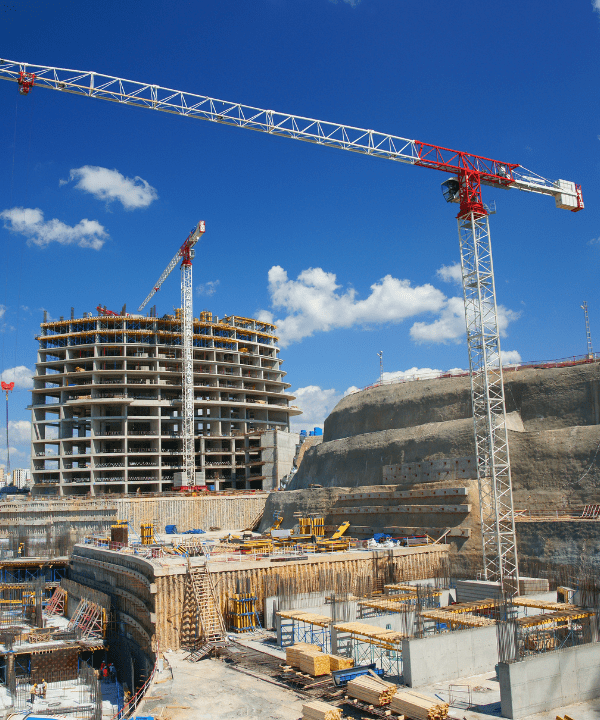So, you’re probably wondering what exactly is a construction management software? Well, it’s pretty much a tool that helps construction companies and contractors like you to manage all the different aspects of a project. You know, like project management, budgeting and cost management, scheduling and resource management, document management, and communication and collaboration tools. The whole point of the software is to make construction processes smoother and improve overall project efficiency and productivity.
Table of Contents
Key features of construction management software
Project management: With construction management software, you can create and manage project timelines, assign tasks to team members, and track progress on all aspects of the project. This helps to make sure that projects stay on schedule and within budget.
Budgeting and cost management: The software also allows you to create and manage budgets for individual projects and track expenses in real-time. This helps to make sure that projects stay within budget and that any cost overruns are identified and addressed early.
Scheduling and resource management: Construction management software also allows you to create and manage project schedules, assign resources (like equipment and personnel) to tasks, and track resource utilization. This helps to make sure that projects stay on schedule and that resources are used efficiently.
Document management: The software allows you to store and share project-related documents, like plans, specifications, and contracts, in a central location. This helps to make sure that all team members have access to the most up-to-date information and that documents are easily accessible.
Communication and collaboration tools: Construction management software often includes tools for communication and collaboration, like messaging, video conferencing, and file sharing. These tools help to improve communication and collaboration among team members and ensure that projects are completed on time and to the customer’s satisfaction.
Types of construction management software
Cloud-based: Cloud-based construction management software is hosted on remote servers and accessed via the internet. This type is popular because it allows you to access the software from anywhere with an internet connection and eliminates the need for on-premises hardware.
On-premises: On-premises construction management software is installed on your own servers and accessed via a local network. This type is popular for companies that want to maintain control over their data and infrastructure.
Mobile: Mobile construction management software is designed to be used on mobile devices, like smartphones and tablets. This type is popular for companies that need to access project information while in the field.
Benefits of using construction management software
Improved project visibility: Construction management software allows you to view project progress and status in real-time, which helps to ensure that projects stay on schedule and within budget.
Enhanced communication and collaboration: The software’s communication and collaboration tools help to improve communication and collaboration among team members and ensure that projects are completed on time and to the customer’s satisfaction.
Reduced errors and delays: Construction management software streamlines construction processes and improves overall project efficiency and productivity, which helps to reduce errors and delays.
Increased efficiency and productivity: The software’s various features, like project management, budgeting and cost management, and scheduling and resource management, help to increase efficiency and productivity by streamlining construction processes and ensuring that projects stay on schedule and within budget.
Choosing the right construction management software
Identifying your specific needs and requirements: Before selecting a construction management software, it’s important to figure out what your specific needs and requirements are. What size are your projects? How many team members do you have? What types of documents and data do you need to manage? This information will help you pick a software that fits your specific needs and requirements.
Researching and comparing different options: Once you know what you’re looking for, start researching and comparing different options. Look for software that offers the features and functionalities that you need, and compare pricing and contract terms. Read reviews and ask for recommendations from other construction companies or contractors.
Considering factors such as cost, scalability, and user-friendliness: Of course, cost is an important factor to consider when selecting a construction management software. But don’t just go for the cheapest option, think about the long run. Some software may have a higher upfront cost, but it may offer more features and functionalities that can save you money in the long run. You also want to make sure that the software can grow with your organization as you scale. And lastly, user-friendliness is crucial, the software should be easy to use and navigate for all team members.
Testing the software: Once you’ve narrowed down your options, test the software to ensure that it meets your specific needs and requirements. Many software vendors offer free trials or demos, take advantage of this opportunity to test the software before making a final decision.
Evaluating the vendor: Don’t forget to evaluate the vendor’s reputation, customer support, and track record. Choose a vendor with a good reputation for providing quality software and excellent customer support. Make sure to evaluate the vendor’s track record in terms of product updates, security, and compliance.
Choosing the right construction management software is a big deal, it’s the key to streamline construction processes and improve overall project efficiency and productivity. By considering all these factors, you’ll be able to find a software that best fits your organization and helps you achieve your project goals successfully.
